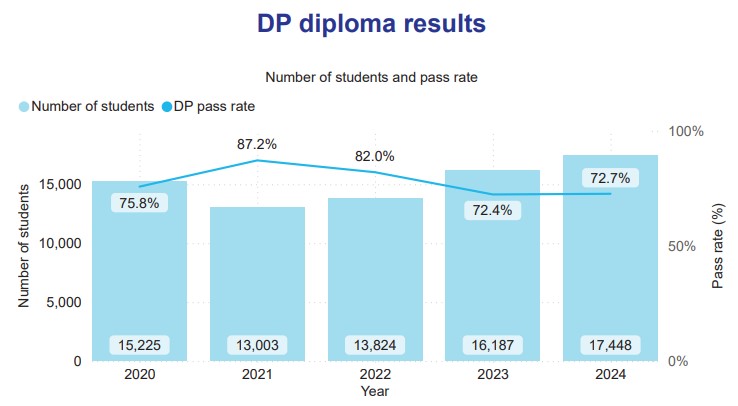International Baccalaureate (IB) is a highly rigorous and challenging program that can provide students with a wealth of knowledge and skills. However, it’s also easy to fall into common traps and mistakes that can make the IB journey even more difficult. In this blog post, we’ll discuss the top 5 mistakes IB students make and provide actionable tips on how to avoid them.
1. Poor Time Management
One of the most common mistakes IB students make is poor time management. With a heavy workload and deadlines looming, it can be easy to procrastinate or become overwhelmed. To avoid this mistake, it’s essential to prioritize and plan out your study schedule. This means setting specific goals for each day or week and breaking down larger assignments into manageable tasks. Using a planner or a study app like Forest can also help keep you on track and focused.
2. Lack of Practice
Another mistake that IB students make is not practicing enough. Many students believe that simply attending lectures or reading textbooks is enough to prepare for exams, but this is not the case. To truly understand and retain information, you must actively engage with it. This means practicing problems, taking practice exams, and participating in group study sessions. By doing so, you can identify areas of weakness and gain a deeper understanding of the material.
3. Poor Study Habits
Poor study habits can also hinder IB students’ success. Many students rely on cramming or pulling all-nighters, but this is not an effective way to learn or retain information. Instead, it’s essential to establish healthy study habits that allow for rest and reflection. This means taking breaks, getting enough sleep, and finding a study environment that works for you. Additionally, using active learning techniques like mnemonic devices or concept maps can help make studying more engaging and effective.
4. Lack of Self-Care
IB students often feel pressure to excel academically, but this can come at the expense of their mental and physical health. Neglecting self-care can lead to burnout, anxiety, and depression, all of which can negatively impact academic performance. To avoid this mistake, it’s important to prioritize self-care activities like exercise, meditation, or spending time with loved ones. Additionally, seeking support from a counselor or therapist can help manage stress and improve overall well-being.
5. Not Seeking Help When Needed
Finally, many IB students make the mistake of not seeking help when they need it. Whether it’s struggling with a particular topic or feeling overwhelmed, there’s no shame in asking for assistance. Teachers, tutors, and peers can all provide valuable support and guidance. Additionally, online resources like Khan Academy can help fill gaps in knowledge and provide additional practice.
Conclusion
The IB program can be a challenging but rewarding experience for students. However, it’s important to avoid common mistakes that can hinder academic success. By prioritizing time management, practicing regularly, establishing healthy study habits, prioritizing self-care, and seeking help when needed, IB students can overcome obstacles and achieve their academic goals.
FAQ
Q. Is the IB program worth the effort?
A: Yes, the IB program can provide students with a range of benefits, including a broader and more in-depth understanding of various subjects, improved critical thinking and research skills, and better preparation for college and career success.
Q. What are some effective study techniques for IB exams?
A: Effective study techniques for IB exams include active reading and note-taking, practicing problems and taking practice exams, using mnemonic devices or concept maps, and participating in group study sessions.
Q: How can I manage stress during the IB program?
A: Managing stress during the IB program is essential for academic success and overall well-being. Some strategies include prioritizing self-care activities like exercise and meditation, finding a supportive social network, seeking support from a counselor or therapist, and utilizing stress management techniques like deep breathing or visualization.
Q: How can I stay motivated during the IB program?
A: Staying motivated during the IB program can be challenging, but there are some strategies that can help. These include setting specific goals and rewards for achieving them, breaking down larger assignments into smaller tasks, finding a study environment that works for you, and surrounding yourself with supportive peers and mentors.
Q: How can I balance IB coursework with extracurricular activities?
A: Balancing IB coursework with extracurricular activities requires effective time management and prioritization. It’s essential to plan out your study schedule in advance, prioritize assignments based on deadlines and importance, and establish a routine that allows for rest and reflection. Additionally, finding extracurricular activities that align with your academic goals or provide stress relief can help you stay motivated and engaged.




